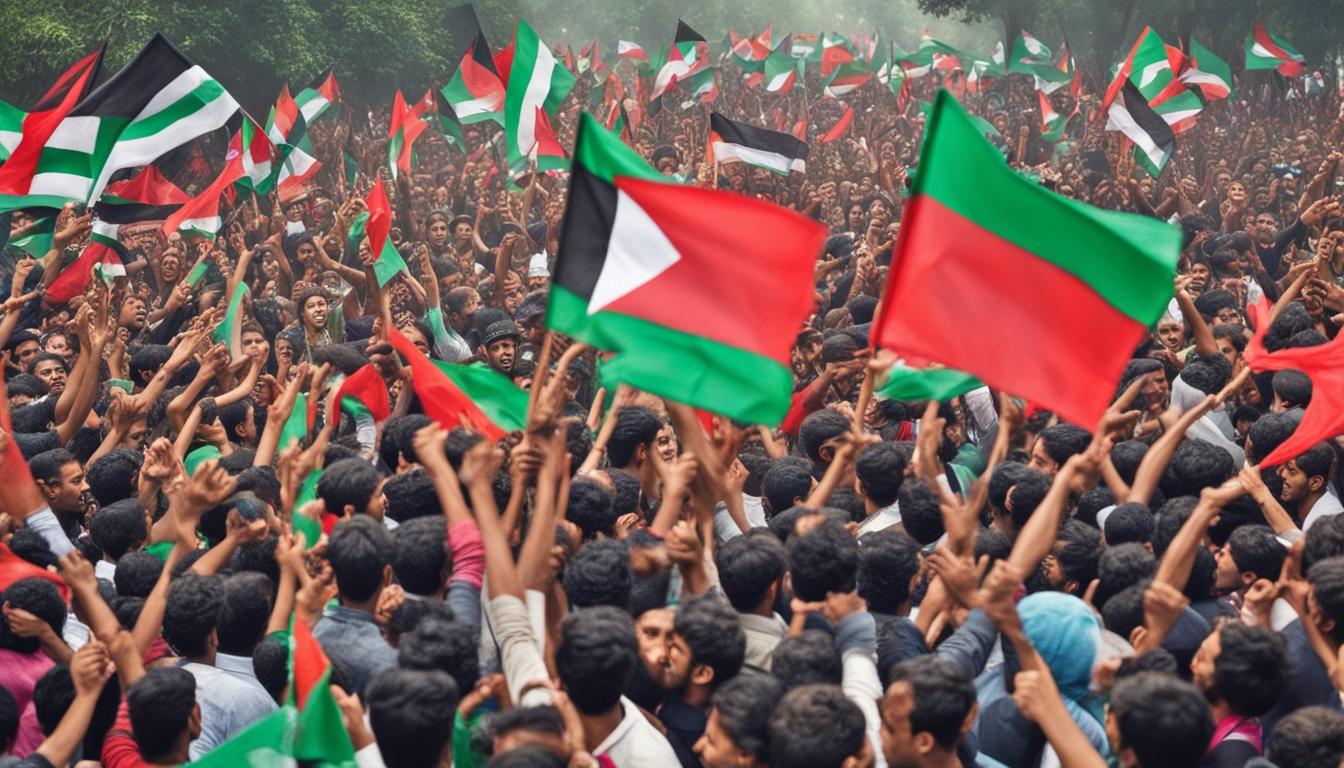Activists in Bangladesh take to the streets demanding an end to the Israel-Gaza conflict, paralleled by diplomatic challenges in Australia as the UN debates Palestinian statehood.
Activists from Bangladesh’s ruling party’s student wing, the Bangladesh Chhatra League, organized marches across various universities in the country, demanding an end to the Israel-Gaza conflict and the establishment of an independent Palestinian state. The demonstrations, featuring anti-Israel slogans and the display of Bangladeshi and Palestinian flags, took place at prominent institutions such as Dhaka University. The activists focused on condemning the violence, particularly its impact on civilians, and called for international intervention.
Bangladesh’s Prime Minister Sheikh Hasina, a long-standing critic of Israel’s policies towards Gaza, reiterated her denunciation, labeling the actions as genocide. This is part of a broader wave of global solidarity movements supporting Palestine.
Meanwhile, in Australia, Prime Minister Anthony Albanese faces a diplomatic dilemma as the United Nations deliberates on a resolution to grant Palestine full membership. The issue revives internal debates reminiscent of 2012 when Australia adopted an abstain position on a similar matter. With the ongoing conflict in Gaza intensifying, the situation pressures the Australian government to clarify its stance amidst global and domestic scrutiny. Albanese emphasized Australia’s commitment to a two-state solution but remained non-committal about the impending UN vote. The decision comes at a critical moment, revealing the complex geopolitical dynamics at play.













